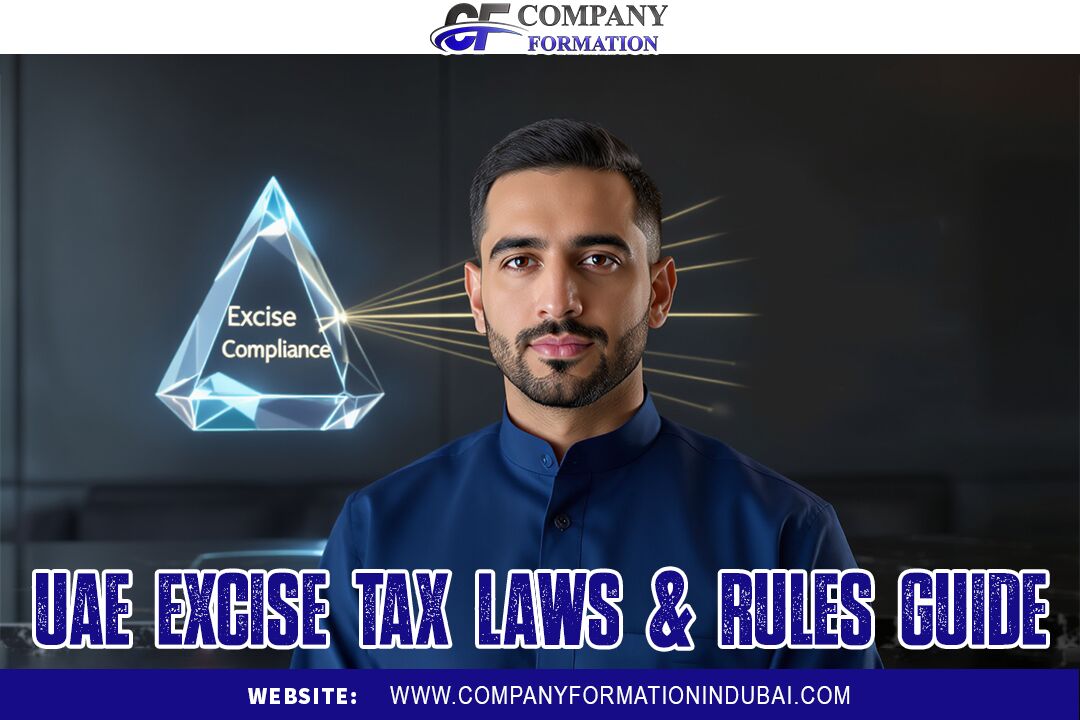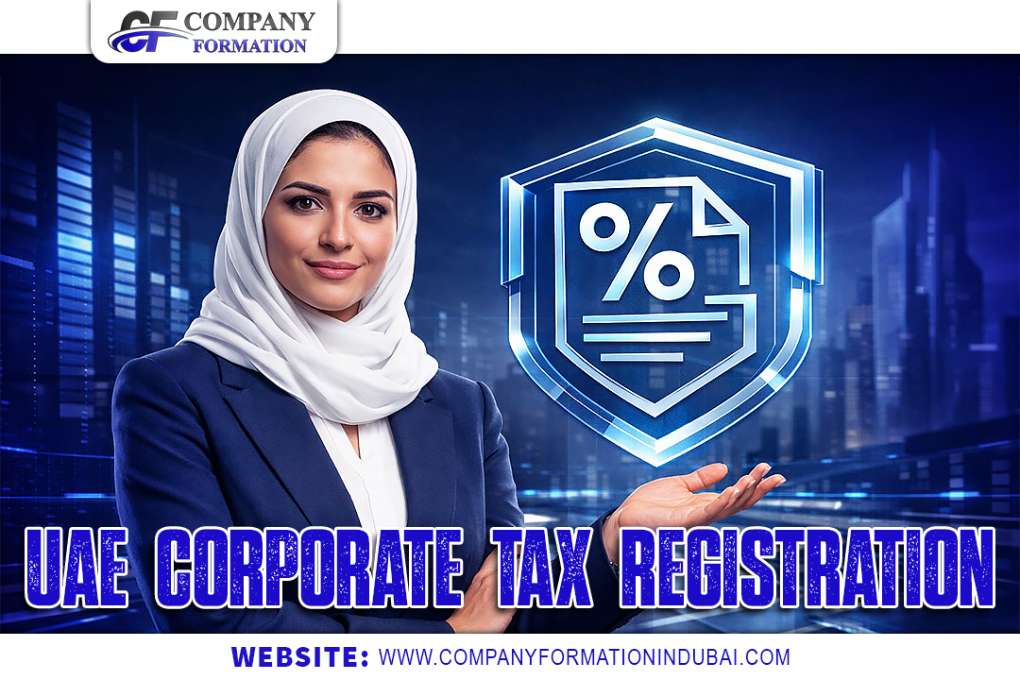UAE Excise Tax | Your Complete Guide to Excise Tax Law, Rules, and Regulations
If you’re a business owner in Dubai or Abu Dhabi, you must have known that excise tax in the UAE already exists. Decree-Law No. These are known as excise goods, and they involve things like tobacco products, carbonated beverages, energy drinks, electronic smoking devices, and so on, with the list going on. In contrast to VAT, which covers all goods, the excise tax is levied only on these harmful goods in order to discourage their use, while also providing additional revenue for the government to finance public services.
Having helped businesses to navigate the tax laws in the UAE, I know that tax laws can be confusing. But never fear—this guide wires you with the knowledge you need to know about UAE excise tax law, rules, and regulations in straightforward language so you can remain compliant and avoid getting fined.
The UAE introduced an excise tax in which is an indirect tax on goods harmful to the health of individuals, like tobacco products, carbonated drinks, energy drinks, and sugar sweetened beverages, to achieve a balanced, healthy life and generate additional revenue.
Why Does the UAE Levy Excise Tax?
An excise tax was implemented by the UAE for the following three core reasons directly associated with a plan for a healthier and more sustainable future are;
- Public Health: When the worst-offending goods – such as tobacco and sugar-laden drinks – are taxed, the UAE can be more certain that people won’t buy them, which in turn curtails more health problems that stem from obesity, or from other conditions caused by smoking.
- Environmental Protection: Taxing products such as electronic smoking devices can curb environmental harm caused by waste.
- Diversity in Revenue: With excise tax, the UAE government achieves revenue diversity whereby the state coffers are not solely dependent on oil and can fund public services, including healthcare and infrastructure.
This is consistent with the GCC tax system, where other member countries also utilise similar taxes to reduce unhealthy behaviour. For businesses, understanding this is useful in helping you understand why compliance is important – it’s not just about paying tax; it’s about doing your bit to contribute to a wider societal end.
Which Goods Are Subject to Excise Tax in the UAE?
The list of excise goods in the UAE is numbered and controlled by the Federal Tax Authority (FTA). Here’s what’s in it, according to the GCC Common Customs Tariff and Cabinet Decision No. 52 of 2019:
- Aerated drinks: All kinds of aerated drinks (except unflavoured soda), including soft drinks, carbonated drinks containing caffeine and food based on malt extract, including imitation of aerated drinks. Example: sodas like cola.
- Energy Drinks: Any drink containing stimulants such as caffeine, taurine, ginseng and guarana and preparations thereof. Example: energy drinks such as Red Bull.
- Tobacco Products: Cigarettes, cigars, chewing tobacco, cigarillos, cut tobacco, snuff and reconstituted tobacco sheets.
- Electronic Smoking Devices: implements and materials that vaporise a liquid solution, regardless of whether it contains nicotine (ecigarrettes). Example: vapes and e-liquids.
- Sugar Sweetened Beverages (SSBs): Beverages containing added sugar (e.g., white sugar, glucose syrup) or sweeteners (e.g., aspartame, saccharin), including beverages derived from concentrates. Does not include beverages with 75% or more milk, baby formula, or medical or dietary products.
Such goods are taxed at a given point in time (import, production or release from a bonded zone), so the tax is levied only once, unlike VAT.
Tobacco goods, sweetened drinks, energy drinks and electronic smoking tools are subject to excise tax in the UAE in accordance with the respective excise tax legislation.
What Are the Excise Tax Rates in the UAE?
The excise tax rates in the UAE, set by Cabinet Decision No. 52 of 2019, are straightforward:
| Product | Excise Tax Rate |
| Carbonated Drinks | 50% |
| Sugar Sweetened Beverages | 50% |
| Tobacco Products | 100% |
| Energy Drinks | 100% |
| Electronic Smoking Devices | 100% |
| Liquids Used in Electronic Smoking Devices | 100% |
These rates apply to the retail price (Ad Valorem method) or per unit (Specific Rate method), depending on the product. For example, a carbonated drink priced at AED 5 incurs a 50% excise duty, adding AED 2.5, making the total AED 7.5. A pack of cigarettes might have a fixed rate per cigarette, like AED 0.4.
The rates are 50% for carbonated drinks and sugar sweetened beverages, and 100% for tobacco products, energy drinks, and electronic smoking devices.
How to Register for Excise Tax in the UAE?
If your business deals with excise goods, you must register with the Federal Tax Authority. This applies to:
- Importers of excise goods into the UAE.
- Producers of excise goods released for consumption.
- Stockpilers holding excise goods without prior tax payment.
- Warehouse keepers managing designated zones.
Here’s how to register, based on my experience helping businesses with UAE business setup:
- Create an FTA Account: Visit the FTA e-services portal and sign up.
- Submit Registration Form: Complete the excise tax registration form with your business details.
- Provide Documentation: Include your business registration in Dubai or other emirates, and details of excise goods.
- Set Up a Bank Account: Open a bank account in Dubai for tax payments, as required by the FTA.
- Meet Deadlines: Register within 30 days of starting taxable activities or by October 1, 2017, for existing businesses.
The excise tax UAE deadline for registration has no threshold, so even small businesses must comply. Use UAE PRO services or consult a business setup expert in Dubai to streamline the process, especially if you’re also applying for a Golden Visa UAE.
Register via the FTA e-services portal by creating an account, submitting a form, and providing business details within 30 days of starting taxable activities.
How to Calculate Excise Tax in the UAE?
Calculating excise tax in the UAE depends on the method used: Specific Rate or Ad Valorem. Here’s how it works, with examples from my work with clients:
- Specific Rate Method: A fixed tax per unit.
Example: For cigarettes, if the rate is AED 0.4 per cigarette, a pack of 20 costs AED 20 + (20 × 0.4) = AED 28. - Ad Valorem Method: A percentage of the retail price.
Example: For an energy drink priced at AED 10, with a 100% rate, the tax is AED 10, making the total AED 20.
Example: A carbonated drink at AED 5 with a 50% rate incurs AED 2.5, totaling AED 7.5.
The tax registration process ensures you report these calculations accurately. Use FTA compliance tools or excise tax software UAE to simplify calculations, especially for stockpiling scenarios.
Calculate using the Specific Rate (fixed amount per unit) or Ad Valorem (percentage of retail price) methods, as outlined by the FTA.
What Are the Excise Tax Exemptions in the UAE?
The UAE excise tax law offers exemptions to reduce the tax burden in specific cases. Based on Article 12 and FTA guidelines, exemptions include:
- Exported Excise Goods: Goods shipped outside the UAE with customs declarations.
- Designated Zones: Goods stored in designated zones are tax-exempt until released for consumption.
- Specific Products: Baby formula, beverages with 75%+ milk, and medical/dietary products.
- Diplomatic Missions: Foreign entities with reciprocal agreements can claim refundable tax.
- Non-Regular Importers: Those importing excise goods infrequently (≤1 in 6 months or ≤3 in 24 months).
- Travelers’ Allowances: Personal imports below duty-free limits.
For example, a business exporting tobacco products avoids excise duty by providing proof of export. Check the UAE Excise Tax Law PDF on the FTA website for details.
Exemptions include exported goods, designated zones, baby formula, medical products, diplomatic missions, and non-regular importers.
How to File an Excise Tax Return in the UAE?
Filing an excise tax return in the UAE is mandatory for registered businesses. Here’s the process, based on my experience:
- Log into EmaraTax: Use the EmaraTax platform, integrated with UAE Central Bank and UAE PASS, to file returns.
- Submit by the 15th: File by the 15th day after each tax period (usually monthly).
- Detail Excise Goods: Include quantities of taxable goods (e.g., cigarettes, energy drinks).
- Calculate Tax Due: Report the excise tax calculation based on rates and methods.
- Pay the Tax: Use your bank account in Dubai to pay via FTA e-services.
The FTA provides guides like the Excise Tax User Guide to help. Missing deadlines incurs penalties for non-compliance, so use excise tax compliance checklist UAE to stay organized.
File monthly returns via EmaraTax by the 15th, detailing excise goods and paying the tax due.
What Are the Penalties for Non-Compliance with UAE Excise Tax?
Non-compliance with UAE excise tax regulations can lead to hefty fines. The FTA enforces strict rules, and penalties include:
| Penalty Category | Details | Penalty Amount |
| Late Registration/Deregistration | Missing registration deadlines | AED 10,000 (registration), AED 1,000/month (deregistration, max AED 10,000) |
| Late Tax Return | Missing filing deadline | AED 1,000 (first time), AED 2,000 (repeat within 24 months) |
| Late Payment | Delayed tax payment | 2% of unpaid tax (immediate), 4% per month (max 300%) |
| Tax Evasion | Avoiding tax payment | Varies, based on severity |
For example, failing to display prices inclusive of excise tax or mismanaging designated zones triggers administrative penalties. Keep accurate record-keeping to avoid issues during tax audits.
Penalties include AED 10,000 for late registration, AED 1,000–2,000 for late returns, and up to 300% of unpaid tax for late payments.
How Does Excise Tax Compare to VAT in the UAE?
Understanding the difference between excise tax vs VAT UAE is crucial for businesses. Here’s a comparison:
| Aspect | Excise Tax | VAT |
| Purpose | Reduces consumption of harmful goods | Generates broad revenue |
| Scope | Specific goods (tobacco, energy drinks, SSBs) | Most goods and services |
| Tax Rate | 50% (carbonated drinks, SSBs), 100% (tobacco, energy drinks) | 5% standard, 0% for exports |
| Tax Point | At import/production | Every supply chain stage |
| Reporting | Monthly returns by 15th | Quarterly/monthly, within 28 days |
For example, a carbonated drink incurs a 50% excise tax at import, plus 5% VAT at sale. This distinction helps businesses plan tax compliance effectively.
Excise tax targets harmful goods with higher rates (50–100%), while VAT is a 5% broad-based tax.
What Is the Tiered Volumetric Model for Sugar Sweetened Beverages?
Starting in 2026, the Ministry of Finance and FTA will implement a tiered volumetric model for sugar sweetened beverages. This shifts from a flat 50% rate to a tax based on sugar content per 100ml. The higher the sugar, the higher the tax per liter. This encourages manufacturers to reduce sugar content and supports public health goals.
A 2026 tax model for sugar sweetened beverages, taxing based on sugar content per 100ml to promote healthier products.
How Do Digital Tax Stamps Work for Tobacco Products?
Since 2021, digital tax stamps are mandatory for tobacco products like cigarettes and water pipe tobacco, per FTA Decision No. 3 of 2021. These stamps ensure tax compliance and prevent tax evasion. Here’s how they work:
- Stamp Application: Manufacturers and importers apply digital tax stamps to tobacco products before import or sale.
- FTA DTS App: The FTA DTS app verifies stamps, ensuring authenticity.
- Compliance: Products without stamps are banned from import, reducing illegal trade.
Businesses must register products on the FTA’s electronic system to comply. This is critical for stockpiling or importing tobacco.
Digital tax stamps ensure tobacco products comply with excise tax, verified via the FTA DTS app.
How to Appeal an Excise Tax Penalty in the UAE?
Facing an excise tax penalty can be stressful, but you can appeal it. Here’s the process, based on my experience assisting clients:
- Review the Penalty: Check the FTA notice for details (e.g., late filing, tax evasion).
- Gather Evidence: Collect record-keeping documents, like tax returns or proof of payment.
- Submit Appeal: File via the FTA e-services portal within the specified timeframe (usually 20–40 business days, per FTA guidelines).
- Consult Experts: Use UAE PRO services or a business setup expert in Dubai for guidance.
What Tools Can Help with Excise Tax Compliance in the UAE?
Staying compliant with UAE excise tax is easier with the right tools. Here are some options:
- EmaraTax Platform: Streamlines excise tax registration, filing, and payments, integrated with UAE Central Bank.
- Excise Tax Software UAE: Tools like Zoho Books or QuickBooks offer excise tax compliance checklist UAE features, tracking taxable goods and calculations.
- FTA Compliance Tools: Guides like the Excise Tax User Guide and FTA DTS app for digital tax stamps.
- Tax Audit Preparation UAE: Hire consultants for tax audit UAE readiness, ensuring accurate record-keeping.
FAQs for UAE Excise Tax Blog
Q1: What is excise tax in the UAE, and which goods are taxed?
Excise tax in the UAE is an indirect tax introduced on October 1, 2017, under Federal Decree-Law No. 7 of 2017, targeting excise goods harmful to public health or the environment. These include tobacco products (e.g., cigarettes, cigars, chewing tobacco), carbonated drinks (e.g., sodas, excluding unflavored aerated water), energy drinks (containing caffeine, taurine, or ginseng), electronic smoking devices (e.g., vapes, e-liquids), and sugar sweetened beverages (SSBs) with added sugar or sweeteners like aspartame. Since December 2019, SSBs and electronic smoking devices were added to the excise goods list UAE, per FTA regulations. This tax reduces consumption and supports government revenue for public services.
Q2: How do I register for excise tax in the UAE?
To register for excise tax in the UAE, visit the FTA e-services or EmaraTax platform, integrated with UAE PASS and UAE Central Bank. Create an account, submit a tax registration form with your business registration in Dubai or other emirates, and provide details of taxable goods (e.g., tobacco products, energy drinks). There’s no registration threshold, so businesses importing, producing, or stockpiling excise goods must register within 30 days of starting taxable activities or by the excise tax UAE deadline (October 1, 2017, for existing businesses). Use UAE PRO services or consult a business setup expert in Dubai for help. Check the Excise Tax Registration User Guide (PDF, 250 KB) on the Federal Tax Authority website.
Q3: How is excise tax calculated in the UAE?
Excise tax calculation in the UAE uses two methods: Ad Valorem (percentage of retail price) or Specific Rate (fixed amount per unit). For example, a carbonated drink priced at AED 10 with a 50% excise tax rate incurs AED 5 tax, totaling AED 15. A pack of 20 cigarettes at AED 0.4 per cigarette (Specific Rate) adds AED 8 tax, totaling AED 28 if the base price is AED 20. Rates are 50% for carbonated drinks and sugar sweetened beverages, and 100% for tobacco products, energy drinks, and electronic smoking devices, per Cabinet Decision No. 52 of 2019. Use excise tax software UAE or FTA compliance tools for accuracy, especially for designated zones or stockpiling.
Q4: What are the penalties for non-compliance with UAE excise tax?
Non-compliance with UAE excise tax regulations triggers administrative penalties from the Federal Tax Authority. Late excise tax registration incurs a AED 10,000 fine, while late tax returns cost AED 1,000 (first offense) or AED 2,000 (repeat within 24 months). Late tax payment faces a 2% immediate penalty plus 4% monthly (up to 300% of unpaid tax). Tax evasion or failing to apply digital tax stamps on tobacco products can lead to higher fines, depending on severity. Proper record-keeping and tax audit preparation UAE help avoid these penalties for non-compliance. File returns by the 15th of each tax period via EmaraTax to stay compliant.
Q5: What is the 2026 tiered volumetric model for sugar sweetened beverages in the UAE?
The tiered volumetric model UAE 2026, announced by the Ministry of Finance and FTA, replaces the flat 50% excise tax rate on sugar sweetened beverages (SSBs) with a tax based on sugar content per 100ml, effective 2026. Higher sugar content means a higher tax per liter, encouraging manufacturers to reduce sugar or sweeteners like fructose or saccharin. This supports public health and aligns with GCC tax policies. Businesses must update systems and formulations, per FTA SSB guidelines, with awareness campaigns planned for compliance. For example, a low-sugar SSB might face AED 0.5 per liter, while a high-sugar drink pays AED 2.
Conclusion: Stay Compliant with UAE Excise Tax
UAE excise tax law, rules and regulations don’t have to be complicated. You can keep your business in line by familiarising yourself with excise goods, tax rates, as well as registration and compliance. Whether you are importing tobacco, manufacturing energy drinks, or distributing sugar-sweetened drinks, FTA offers tools to assist you in your business, like EmaraTax and FTA e-services. The volumetric tiered of 2026 is approaching, time to step up your process, use excise tax software, and get advice on UAE business setup! Remain proactive, receive benefits from a penalty waiver and support the public health and ecological interests of the UAE.
Check the FTA website for the complete update or for the UAE Excise Law PDF. If you are opening a company in Dubai or looking for a bank account opening in Dubai, then add excise tax registration to your to-do list for a smooth enforcement.








